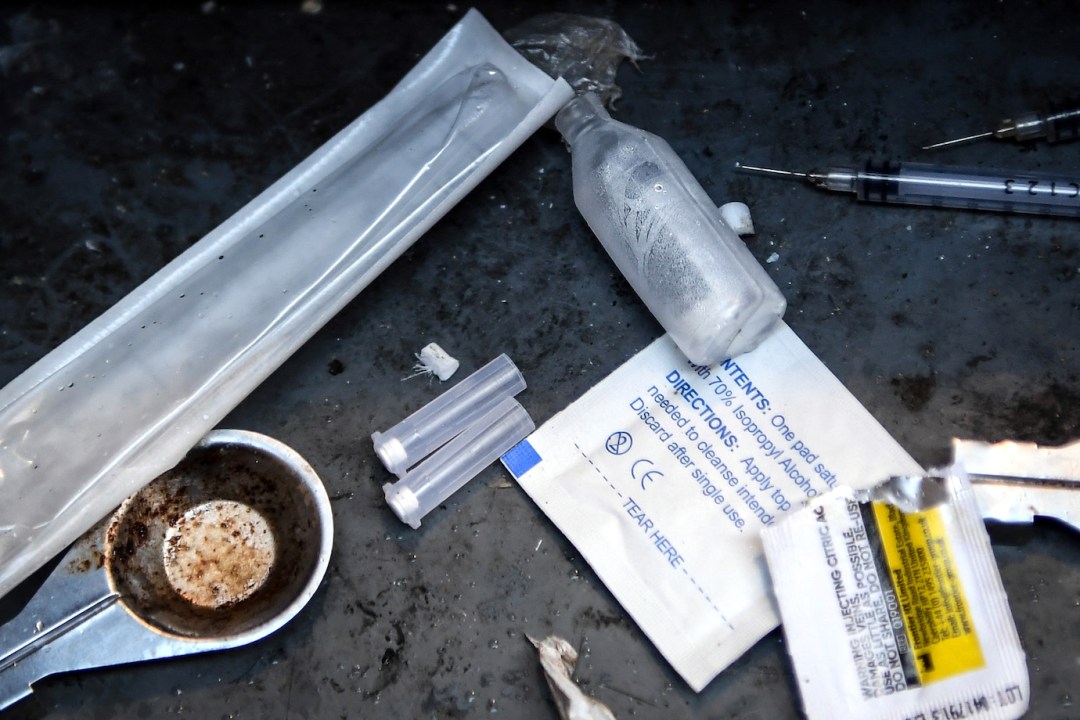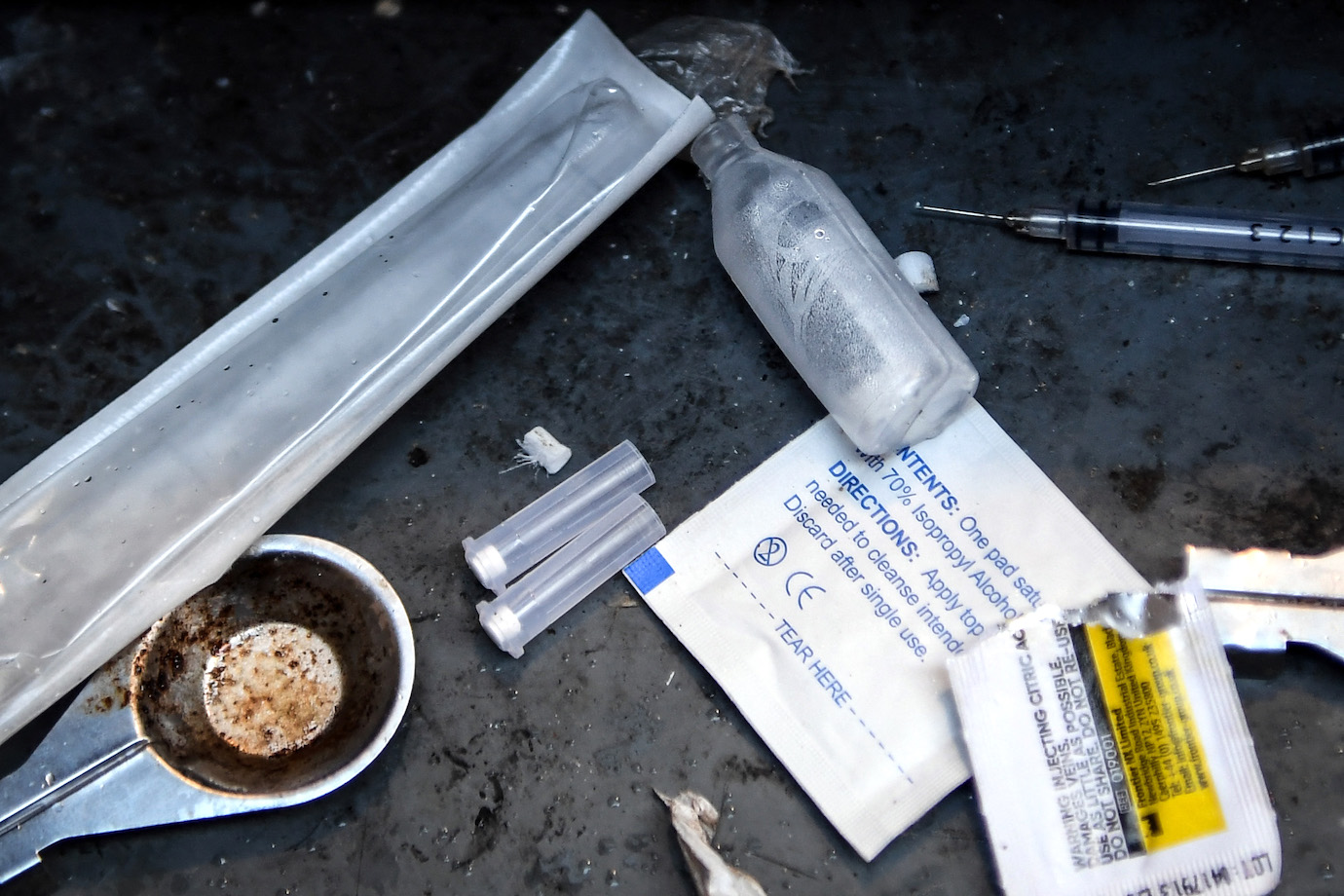Scotland is the drug deaths capital of Europe and changing that is going to take something radical. The Scottish government thinks it’s found that something: the decriminalisation of all drugs for personal use. Humza Yousaf’s administration has issued a call for ‘a caring, compassionate and human rights informed drugs policy, with public health and the reduction of harm as its underlying principles’.
Between 2000 and 2021, 14,426 Scots died a drug-related death. For perspective, that is more than four times the death toll in the Troubles from 1969 to 2001
Yousaf proposes decriminalisation with a wider review of drug laws, calls on the UK government to legislate this and other changes or devolve the necessary powers to Holyrood, and urges a rethink of drug classification based on harms caused. The blueprint, which takes forward recommendations from Scotland’s Drug Deaths Taskforce, was published on Friday by Holyrood’s drugs policy minister Elena Whitham.
Barely had the proposals reached the newswires than they were rejected by Rishi Sunak and shadow chancellor Rachel Reeves. Since the Misuse of Drugs Act 1971 is a reserved matter, that would appear to be that for Scottish drug reform. A number of factors inform these responses. One is the expectation that decriminalisation in one UK jurisdiction while the others maintain prohibition would cause difficulties in law and policing. Avoiding cross-border legal problems was central to ministers’ plans to block Nicola Sturgeon’s Gender Recognition Reform Bill, so it was predictable that the same concerns would be at play here.
Another is the concern that removing criminal sanctions for personal possession could increase demand and attract criminal supply gangs. Then there is the fact that few jurisdictions have attempted what the Scottish government is proposing within the essentially unique governmental and legal arrangements in place in the UK. Finally, there is a (much belated) appreciation at Westminster that weaponising non-constitutional issues is key to the SNP’s independence strategy.
This scepticism is understandable given the SNP’s track record and the various practical obstacles. However, that doesn’t change the realities on the ground. There were 1,330 fatalities linked to drugs in 2021. More people were killed by drugs in Scotland that year than died by homicide in New York, Los Angeles, Detroit, San Diego and San Fransisco combined. Between 2000 and 2021, 14,426 Scots died a drug-related death. For perspective, that is more than four times the death toll in the Troubles from 1969 to 2001 and more than three times the number of Israeli civilians killed by Palestinian terrorists since 1948. Or, put even more starkly, every eight hours in Scotland someone dies from drug misuse.
The Scottish government believes this situation should be treated as a public health emergency, rather than a criminal justice matter. Illegal drug use is contributing to falling life expectancy in Scotland, with the average age of death for a man falling six weeks earlier as a result. Drug abuse is the third biggest cause of ‘health loss’ in Scotland, driving down medical well-being even more than lung cancer. It is also a social emergency. Scots from the most deprived backgrounds are 15 times more likely to be killed by drugs than those who are affluent. Men are 2.4 times as likely to die as women while those aged between 35 and 54 account for 65 per cent of fatalities. In the last two decades, the average age of drug-related death climbed from 32 to 44.
When deaths hit a record high (1,339) in December 2020, the resulting scandal cost the drugs minister his job and saw the then first minister Nicola Sturgeon introduce her ‘national mission to reduce drug deaths and improve lives’, along with a five-year funding increase of £250 million. Since it was the SNP government that had cut funding to drug support services, it was a case of bolting the stable door after the horse had overdosed but a welcome development nonetheless. Since then progress has been grindingly slow, with the annual death toll appearing to have plateaued but few reasons for optimism beyond that.
Scottish ministers seem to see decriminalisation as pivotal to the national mission. They want to remove the legal and social stigma around drug misuse, making it easier for users to seek treatment and rebuild their lives, free from the criminal record that renders many unemployable. This echoes the approach taken by Portugal when it decriminalised in 2001. It now has six drug deaths per million compared to a European Union average of 23.7. Scotland has 25 drug deaths per 100,000.
To those who don’t follow Scottish public policy closely, the decriminalisation call might seem new and dramatic. In fact, the role of criminal law in regulating drug use in Scotland has been evolving for a number of years. In 2021, Dorothy Bain KC, the Lord Advocate, extended the recorded police warning scheme to cover possession of Class A drugs. This meant police officers were permitted to issue a warning rather than report a possession offence to the procurator fiscal, Scotland’s equivalent of a Crown prosecutor. While termed ‘de facto decriminalisation’, it is really a diversion from prosecution since the law is still being enforced via the warning. De jure decriminalisation would effectively remove personal possession from the realm of enforcement to the realm of healthcare, although supplying would continue to be policed and prosecuted.
The Scottish government’s proposals have met with resistance. Generations socialised to fear illegal drugs and see imprisonment as the answer to misuse struggle to come to terms with a healthcare-based approach. Treatment isn’t authoritarian and therefore soft and soft is bad. Critics of the SNP say its support for decriminalisation is cynical, designed to reframe the issue so that attention shifts from 16 years of Scottish government policy failure to the supposed inflexibility of the UK government. This is almost certainly what the SNP is up to, given its hitherto lukewarm attitude towards full decriminalisation, but there is plenty of cynicism to go around here. Let’s be honest: the Venn diagram of those who use the drug deaths statistics to attack the SNP and those who otherwise express any empathy for drug users isn’t exactly a circle. They damn the Scottish government when it does nothing and damn it when it proposes to do something.
This leaves us at an impasse: the unstoppable force of Scotland’s obscenely high drug deaths meets the immovable object of Westminster opposition to reform
This leaves us at an impasse: the unstoppable force of Scotland’s obscenely high drug deaths meets the immovable object of Westminster opposition to reform. Last year, when Scottish Labour MSP Paul Sweeney proposed safe consumption rooms in which people could use drugs with trained medics on standby, the Home Office told me it would be a criminal offence to run such facilities. Their determination to stop UK-wide decriminalisation through a Scottish back door is politically understandable but it means blocking potentially life-saving reforms in a country where prohibition is plainly not working. Westminster has the law on its side but in obstructing decriminalisation it is taking a morally objectionable position. It is saying that no special provisions can be made for Scotland’s unique circumstances, even though those circumstances involve an annual death toll and immeasurable human misery.
We are a year or so away from a general election and neither main party will want to touch an issue that is difficult to explain on the doorstep. The next government should revisit the SNP’s blueprint and study whether a composite solution can be found that allows Scotland to decriminalise and medicalise drug use while maintaining the status quo in the rest of the UK. Scotland’s back is to the wall here. There are only so many naloxone sprays you can hand out. Without the power to attempt a different approach, we are doomed to see the same results year after year. That is morally unsustainable. Eventually, it will become politically unsustainable, too.








Comments